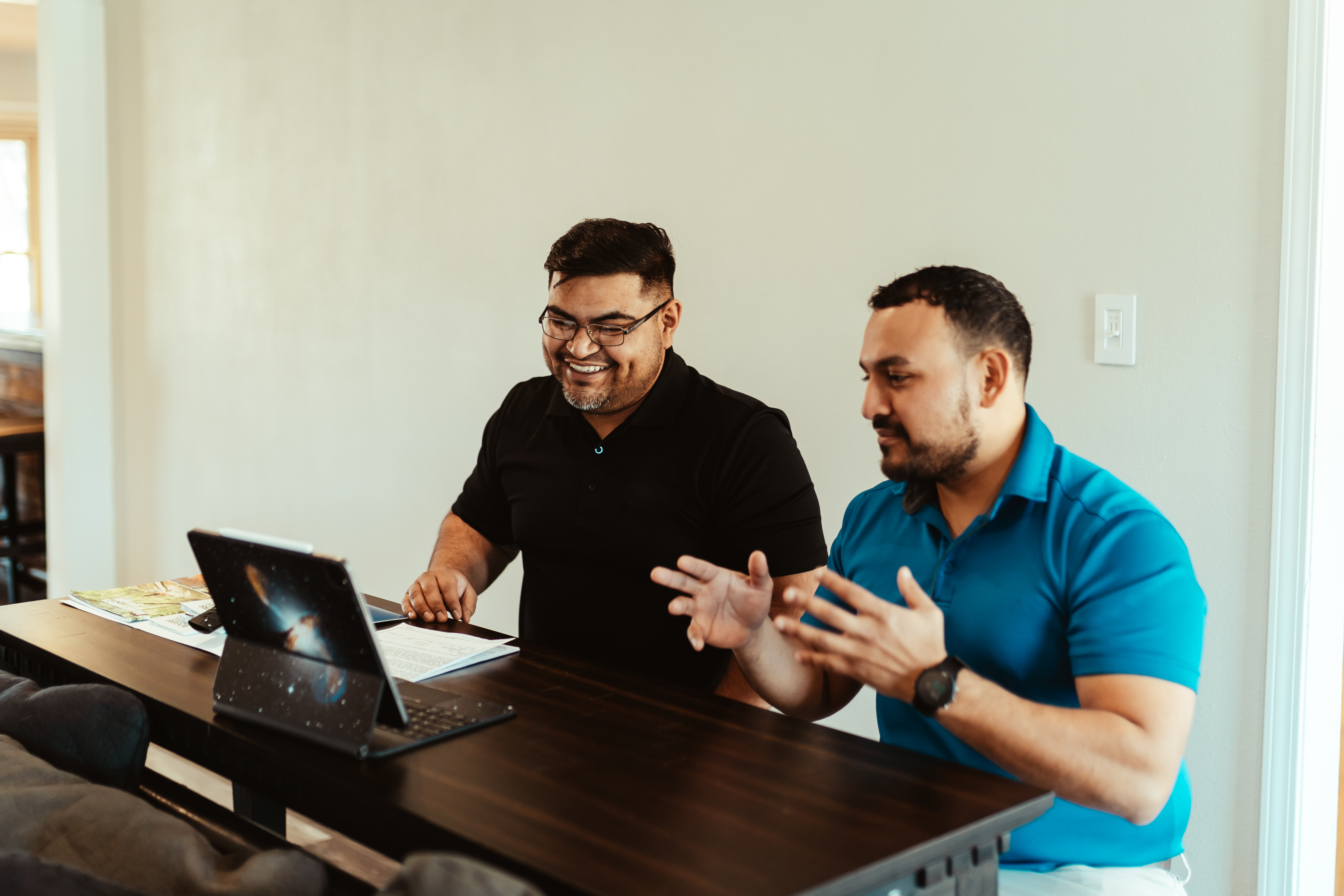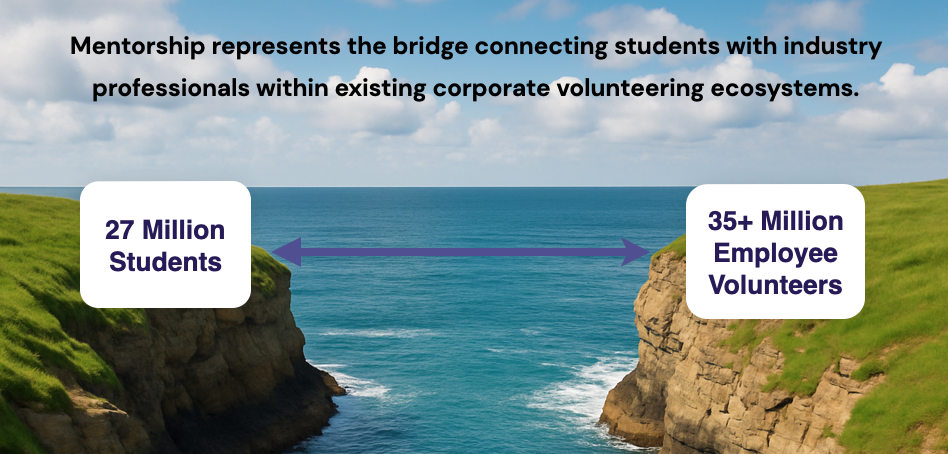Why Corporate Mentorship Is Transforming Skills-Based Volunteering
The Evolution of Skills-Based Volunteering Skills-based volunteering (SBV) has evolved significantly over the past few years. Previously seen as a...
3 min read
 Chris Motley
:
Oct 21, 2025 5:29:01 AM
Chris Motley
:
Oct 21, 2025 5:29:01 AM

Skills-based volunteering (SBV) has evolved from a “nice-to-have” into a strategic driver of corporate purpose. Operational data confirms the shift: the median number of volunteer hours for companies utilizing SBV programs surged to 65,560 in 2022 — a 31% increase in just two years, according to the CECP Giving in Numbers report.
This momentum signals something bigger. The next frontier in corporate impact is structured mentorship — a model that combines the purpose of volunteering with the rigor of leadership development and the reach of digital connection.
Mentorship is the high-impact, scalable, and measurable evolution of skills-based volunteering.
For CSR and ESG leaders running programs on platforms like Benevity, YourCause from Blackbaud, and Goodera, integrating mentorship into the corporate volunteer ecosystem is the most strategic path toward measurable community impact and workforce outcomes.
While traditional volunteering (e.g., serving meals, community cleanups) provides valuable support, it often struggles to create sustained engagement or measurable outcomes at scale.
Limited Lasting Impact
One-off activities rarely build deep, enduring community relationships. They’re meaningful in the moment but hard to connect to systemic change — and often stretch nonprofit capacity without sustainable outcomes.
Hard to Connect to Workforce Development Outcomes
Traditional volunteering metrics (hours served, events held) don’t capture the strategic value of developing workforce skills. In a post-pandemic job market where teamwork, communication, and adaptability are at a premium, career mentorship provides the most direct route to cultivating these competencies in both students and employees.
Difficult to Track Employee Development
CSR leaders are now expected to demonstrate Return on Purpose (ROP) — tangible ROI for engagement and retention. But outputs alone can’t capture leadership growth, skill development, or cultural impact.
The world of work and giving has changed. It’s time for volunteering to catch up.
Mentorship reframes volunteering as an exchange of knowledge and experience — not just time. It harnesses employee expertise for dual impact: developing leaders inside the company while expanding opportunity outside it.
Mentorship channels employees’ most valuable capabilities: communication, empathy, and problem-solving. Participants strengthen their social and emotional skills, build inclusive leadership traits, and sharpen their ability to coach others — all while supporting students’ career readiness.
Mentorship directly addresses the social capital gap that holds many students back. Research shows that roughly half of jobs and internships come through personal connections. Yet, underrepresented students are often excluded from these networks.
By connecting employee mentors with students through digital platforms, mentorship programs democratize access to professional relationships — expanding opportunity regardless of geography or background.
Structured mentorship aligns seamlessly with the pillars of modern CSR:
ESG: Mentorship develops inclusive leadership and cultural intelligence.
Workforce Development: It supports pipeline-building and reskilling — both critical for companies navigating talent shortages.
Employee Engagement & Retention: Employees who volunteer through structured programs are more satisfied with their jobs (79%) and stay longer, according to Ares Management Corporation.
Mentorship transforms SBV from a compliance exercise into a competitive advantage.
Transitioning to a mentorship-driven SBV model doesn’t require a full overhaul — it starts with a pilot.
Launch a focused, measurable program that connects employees with students or early-career talent. With clear objectives and a defined cohort, CSR leaders can quickly demonstrate engagement and community outcomes.
Platforms like Benevity, YourCause from Blackbaud, and Goodera already manage employee engagement data. By layering structured mentorship tracking on top, CSR teams can move beyond “hours served” to capture:
Skill Development: % of employees reporting growth in key competencies.
Career Advancement: % of mentors who took on new roles or leadership responsibilities.
Engagement & Retention: eNPS scores for mentors vs. non-mentors.
Focus partnerships on expanding equitable access — such as collaborations with Historically Black Colleges and Universities (HBCUs) or Minority-Serving Institutions (MSIs). These partnerships align corporate volunteer supply with student demand for mentorship and career pathways.
Mentorship represents a leadership opportunity for CSR executives to define their legacy. It is the rare intersection where employee development and systemic social impact meet — where purpose becomes measurable.
At Mentor Spaces, we’re helping companies bring this vision to life through evidence-based, structured mentorship that scales across employee populations and community networks.
Mentorship is more than giving back. It’s building forward.
It’s time to make mentorship the next frontier of skills-based volunteering.

The Evolution of Skills-Based Volunteering Skills-based volunteering (SBV) has evolved significantly over the past few years. Previously seen as a...

There are approximately 20 million students enrolled in U.S. postsecondary programs, and an additional 7 million individuals are high school juniors...

Corporate social impact is undergoing a major transformation.